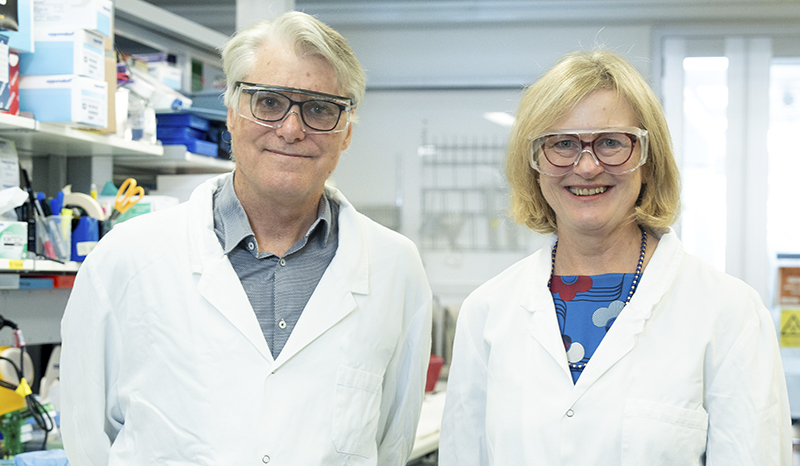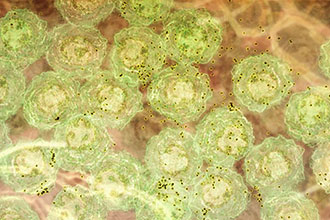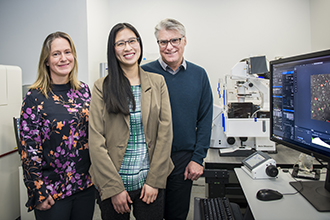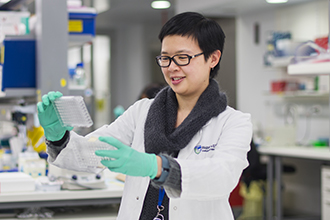Biemond M, Vremec D, Gray DH, Hodgkin PD, Heinzel S. Programmed death receptor 1 (PD‐1) ligand Fc fusion proteins reduce T‐cell proliferation in vitro independently of PD‐1. Immunology and Cell Biology. 2024;102(2):10.1111/imcb.12714
Heinzel S, Cheon H, Belz GT, Hodgkin PD. Survival and division fate programs are preserved but retuned during the naïve to memory CD8+ T‐cell transition. Immunology and Cell Biology. 2024;102(1):10.1111/imcb.12699
Farchione AJ, Cheon H, Hodgkin PD, Bryant VL. Quantifying Human Naïve B Cell Proliferation Kinetics and Differentiation in Controlled In Vitro Cell Culture. Methods in Molecular Biology. 2024;2826:10.1007/978-1-0716-3950-4_13
Hodgkin PD. Kevin Lafferty and the lymphocyte costimulator: theory and practice in Canberra. Immunology and Cell Biology. 2023;101(8):10.1111/imcb.12683
Robinson MJ, Ding Z, Dowling MR, Hill DL, Webster RH, McKenzie C, Pitt C, O’Donnell K, Mulder J, Brodie E, Hodgkin PD, Wong NC, Quast I, Tarlinton DM. Intrinsically determined turnover underlies broad heterogeneity in plasma-cell lifespan. Immunity. 2023;56(7):10.1016/j.immuni.2023.04.015
Kong IY, Trezise S, Light A, Todorovski I, Arnau GM, Gadipally S, Yoannidis D, Simpson KJ, Dong X, Whitehead L, Tempany JC, Farchione AJ, Sheikh AA, Groom JR, Rogers KL, Herold MJ, Bryant VL, Ritchie ME, Willis SN, Johnstone RW, Hodgkin PD, Nutt SL, Vervoort SJ, Hawkins ED. Epigenetic modulators of B cell fate identified through coupled phenotype-transcriptome analysis. Cell Death & Differentiation. 2022;29(12):10.1038/s41418-022-01037-5
Robinson MJ, Dowling MR, Pitt C, O’Donnell K, Webster RH, Hill DL, Ding Z, Dvorscek AR, Brodie EJ, Hodgkin PD, Quast I, Tarlinton DM. Long-lived plasma cells accumulate in the bone marrow at a constant rate from early in an immune response. Science Immunology. 2022;7(76):10.1126/sciimmunol.abm8389
Horton MB, Cheon H, Duffy KR, Brown D, Naik SH, Alvarado C, Groom JR, Heinzel S, Hodgkin PD. Lineage tracing reveals B cell antibody class switching is stochastic, cell-autonomous, and tuneable. Immunity. 2022;55(10):10.1016/j.immuni.2022.08.004
Zotos D, Quast I, Li-Wai-Suen CSN, McKenzie CI, Robinson MJ, Kan A, Smyth GK, Hodgkin PD, Tarlinton DM. The concerted change in the distribution of cell cycle phases and zone composition in germinal centers is regulated by IL-21. Nature Communications. 2021;12(1):10.1038/s41467-021-27477-0
Naik S, Tian L, Tomei S, Schreuder J, Weber T, Amman-Zalcenstein D, Lin D, Tran J, Audiger C, Bahlo M, Chu M, Diakumis P, Gouil Q, Hilton A, Jarratt A, Willson T, Kats L, kelly M, Pang ES, O’Keeffe M, Patton T, Sargeant T, Su S, Hodgkin P, Ng A, Ritchie M. 3104 – CLONAL MULTI-OMICS METHODS SIS-SEQ AND SIS-SKEW REVEAL BCOR AS A NEGATIVE REGULATOR OF EMERGENCY DENDRITIC CELL DEVELOPMENT. Experimental Hematology. 2021;100:10.1016/j.exphem.2021.12.321






